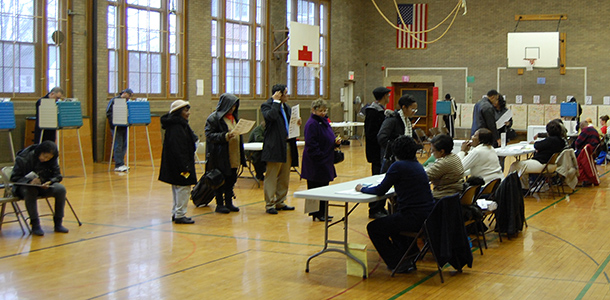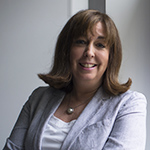
John Gardner launched Common Cause in 1970 with an observation that “everybody’s organized but the people.” His vision was for a citizens’ lobby in Washington. But something different happened; Common Cause chapters popped up across the country, taking Gardner’s vision for open and accountable government that served the public interest to the state and local levels.
Common Cause remains active in Washington, but in today's hyper-partisan political world, local and state reformers are making the most headway.
That’s why we are pleased to partner with the 50 State Solution, a bipartisan effort to encourage political reform throughout the country. This effort will provide a platform support and expand the critically important work of reforming our democracy at the state level.
50 State Solution is not seeking to align all state-based reform efforts, or pick winners and losers in strategy or approach; instead, it aims to encourage creative experimentation so we can see which models produce better results in specific locations. We recognize that when it comes to civic and political culture, one size doesn’t fit all. What works in Illinois may not work in Wisconsin.
 Whether it’s citizen redistricting, an inclusive and trustworthy voting process, changes in how primaries are decided or campaign finance reform, the goal of making American democracy more inclusive and responsive is being embraced by more and more Americans. To realize our vision for democracy, we must broaden opportunities for citizens to vote, run for office, make political contributions, draw district lines that honor communities of interest, and organize themselves to engage in and with government.
Whether it’s citizen redistricting, an inclusive and trustworthy voting process, changes in how primaries are decided or campaign finance reform, the goal of making American democracy more inclusive and responsive is being embraced by more and more Americans. To realize our vision for democracy, we must broaden opportunities for citizens to vote, run for office, make political contributions, draw district lines that honor communities of interest, and organize themselves to engage in and with government.
Extreme gerrymandering and big money in politics lead to more polarization, leaving us with gridlock and obstruction. By replacing backroom deals in which politicians draw their own districts with impartial redistricting systems, we’ll encourage the election of representatives who truly represent their communities. That will help bridge the partisan divide and get government working for everyone.
Every eligible voter has a fundamental right to convenient and secure access to the ballot box. But one of every four Americans is still not registered to vote. To lower registration barriers and increase voter turnout, we have prioritized innovative reforms like online and automatic voter registration. Reforms to modernize voter registration have been introduced in more than half of the states; five states — Oregon, California, West Virginia, Vermont, and Connecticut — already have adopted automatic registration.
Once registered, voters may still face long lines, onerous ID requirements, direct intimidation and other barriers at the polls. Common Cause is a leading partner in the Election Protection coalition, a national alliance of nonpartisan groups that troubleshoots problems voters encounter at the polls. We work year round with election officials and local leaders to put voters at the center of our election processes.
Working to fight big money is critical. A coalition of national leaders and partners has come together to develop five principles in our fight against big money in politics:
- Everyone knows who is trying to influence our democracy: all political spending and contributions are disclosed,
- Everyone’s voice is heard: every American has equal access to the ballot box,
- Everyone participates: citizen-funded elections allow people without access to big money to run successfully, and encourage even those candidates with big money to pay more attention to their constituents, not just big donors,
- Everyone plays by fair, common-sense rules: pass the Democracy for All amendment to overturn Citizens United, and
- Everyone is held accountable, with enforceable penalties to deter bad behavior.
Democrats and Republicans alike are fed up with the political status quo. Poll after poll tells us that frustration, cynicism, and anger dominate our political dialogue. And the partisan gridlock that is strangling our nation’s capital makes it difficult to imagine that political reform will become a national priority any time soon.
We maintain our optimism because of the good work happening in states and localities across the country. State leaders are moving toward a stronger, more inclusive, and responsive democracy. It’s time to elevate these successes and amplify our reform agenda.
We look forward to gathering in San Francisco early in 2017 with other leaders from around the country to talk about how the 50 State Solution effort can expand and move forward, and learn what else is needed to support it.
Americans can fulfill the promise of our democracy. Our success depends an ongoing commitment to inclusion and engagement and a determination ready to tackle the nation’s challenges.
We’re pleased to be part of this effort to move forward together.

